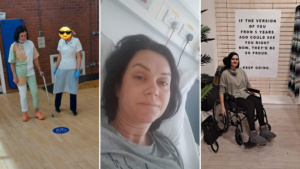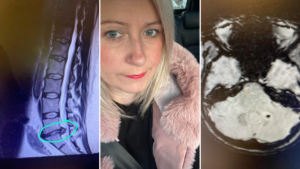
“If you know that someone is only a phone call or email away, it’s a bit like having a safety blanket in place” Janet’s CaverBuddy story
Janet Bunch has been part of our volunteer peer-support scheme, CaverBuddy, for many years. She tells us about why she became a CaverBuddy after her own diagnosis and what supporting others with cavernoma means to her.









